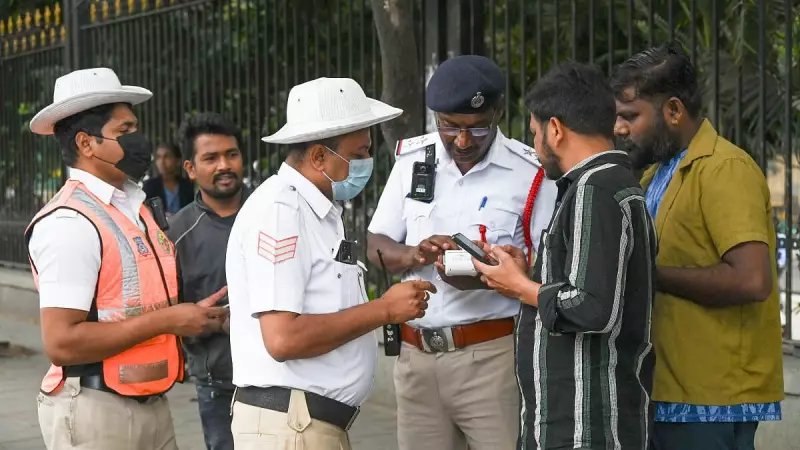
In an unprecedented achievement that highlights both increased enforcement and persistent traffic violations, Bengaluru's traffic police have crossed a monumental milestone in the 2023-24 financial year. For the first time in the city's history, the annual collection from traffic fines has surged past the ₹200 crore mark, setting a new record for traffic penalty collections in India's technology capital.
Record-Breaking Financial Year for Traffic Enforcement
The Bengaluru Traffic Police department collected an astonishing ₹212.6 crore during the financial year 2023-24, which concluded on March 31, 2024. This represents a significant increase from the previous year's collection of ₹157.6 crore, marking a growth of approximately 35% in fine revenue. The massive collection underscores both the scale of traffic violations occurring in the city and the enhanced enforcement capabilities of the police department.
According to official data released by the police department, the city witnessed 72.28 lakh traffic violations during this period. This staggering number translates to nearly 20,000 violations per day on average across Bengaluru's congested roads. The data reveals that an overwhelming majority of these cases - approximately 65.5 lakh violations - were processed and paid through the popular digital payment platform, Unified Payments Interface (UPI).
Technology-Driven Enforcement Revolution
The dramatic increase in fine collection can be largely attributed to the technological transformation in how traffic violations are detected and processed. Bengaluru Traffic Police have increasingly relied on automated enforcement systems including surveillance cameras, speed radars, and other electronic monitoring devices that have made it difficult for violators to escape penalties.
"The integration of technology has been a game-changer for traffic management in Bengaluru," explained a senior police official. "Our automated systems work round the clock, capturing violations that human patrols might miss. This has not only improved enforcement efficiency but also ensured greater transparency in the process."
The convenience of digital payments has also played a crucial role in the increased collections. With 65.5 lakh violations settled through UPI, it's evident that the digital payment infrastructure has made it easier for citizens to pay fines promptly, thereby improving collection rates significantly compared to previous years when physical payment methods were predominant.
Common Violations and Future Initiatives
Analysis of the violation data reveals that the most common infractions included speeding, signal jumping, illegal parking, not wearing helmets and seatbelts, and using mobile phones while driving. The police department has been focusing particularly on violations that directly impact road safety and contribute to accidents.
Looking ahead, the Bengaluru Traffic Police plan to further enhance their technological capabilities with more advanced surveillance systems and artificial intelligence-powered monitoring tools. These systems are expected to improve violation detection rates while reducing the need for physical intervention by traffic personnel.
The record collection has sparked discussions about how these funds should be utilized. Traffic police officials have indicated that the money collected from fines is deposited with the state government treasury. A portion of these funds is expected to be reinvested into improving road infrastructure, enhancing traffic management systems, and launching public awareness campaigns about road safety.
While the massive fine collection indicates effective enforcement, it also highlights the ongoing challenges with traffic discipline in Bengaluru. The city continues to struggle with congestion and road safety issues despite various initiatives. The police department emphasizes that the ultimate goal is not revenue generation but behavior modification among motorists to create safer roads for everyone.






